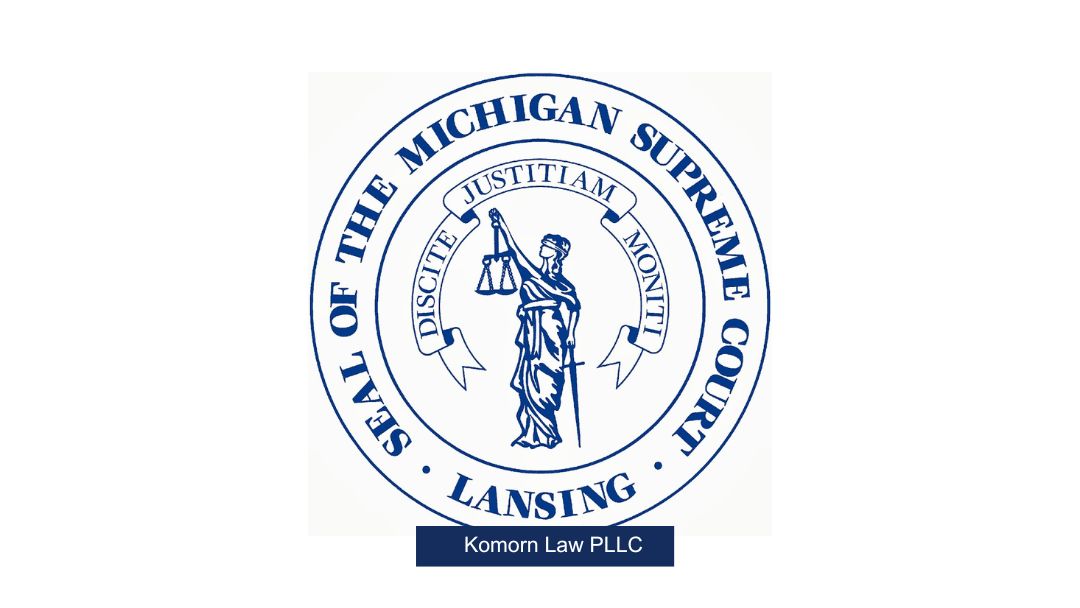In a landmark decision, the Michigan Supreme Court has ruled that counties cannot retain surplus proceeds from tax-foreclosed property sales, a move poised to return millions to former homeowners. This ruling, stemming from the case Rafaeli, LLC v. Oakland County, found that keeping surplus auction proceeds violated the Michigan Constitution’s Takings Clause, which prohibits the government from seizing private property without just compensation.
MCL – Article X § 2 Seizing private property without just compensation
Typical Government Hustle
Historically, Michigan’s tax foreclosure law, established in 1999, allowed counties to auction off properties with unpaid taxes and retain any proceeds beyond the owed taxes and associated fees.
This practice led to significant financial windfalls for counties, often at the expense of the original property owners, who lost their homes and any equity built up in them.
The Supreme Court’s decision overturns this precedent, emphasizing that former homeowners are entitled to any surplus funds from these sales.
The Michigan Supreme Court ruled that practice as unconstitutional and said the homeowner was entitled to that surplus.
At the time of the ruling, only claims from 2020 and later qualified for reimbursement of funds, but a new ruling Monday could impact sales as far back as 2014.
The case that catalyzed this ruling involved Uri Rafaeli, whose property in Oakland County was sold for $24,500 after he failed to pay a $285 property tax debt.
The county kept the entire sale amount, far exceeding the owed tax. The court ruled this action as an unconstitutional taking, highlighting the inequity of the practice.
This decision has significant financial implications for Michigan counties.
Many counties relied on surplus proceeds from tax foreclosure auctions to supplement their budgets and support various county operations.
Wayne County, for instance, often used these funds to cover budget deficits. Now, counties may face financial strain, particularly if the ruling is applied retroactively, necessitating repayments for past surpluses retained from property sales prior to the 2020 decision.
In response to the ruling, Oakland County and others will need to amend their practices. Oakland County has already settled a related lawsuit, establishing a $38 million fund to compensate affected homeowners. This settlement underscores the potential scale of financial restitution that counties might need to provide.
Like every other poor decision the government makes it will be funded by tax payers.
The ruling aligns Michigan with other states that ensure surplus proceeds from tax sales are returned to former property owners, reinforcing property rights and equitable treatment. Moving forward, Michigan counties will need to adjust their tax foreclosure processes to comply with this ruling, likely influencing legislative changes to solidify the new legal framework.
For former homeowners, this ruling represents a significant victory, affirming their rights to any equity remaining in their properties after tax debts are settled. It also serves as a check on governmental overreach, ensuring that property seizure for unpaid taxes does not result in unjust enrichment at the expense of taxpayers.
This decision has broader implications beyond Michigan, resonating with similar cases across the United States. Earlier this year, the U.S. Supreme Court sided with a Minnesota homeowner in a comparable situation, emphasizing a national trend towards protecting homeowners from losing their property equity in tax foreclosure processes.
Conclusion
The Michigan Supreme Court’s ruling mandates a fairer approach to tax foreclosures, ensuring surplus proceeds return to the rightful owners and setting a precedent for property rights protections. This decision will reshape county financial strategies and bolster homeowner protections, marking a pivotal shift in Michigan’s handling of tax-delinquent properties
Legal Counsel and Your Rights
When facing legal challenges, particularly in criminal cases, it is advisable to seek legal counsel immediately.
An experienced attorney can provide guidance on how to navigate interactions with law enforcement while safeguarding your constitutional rights.
Since 1993 our expert legal defense in navigating criminal law matters and protecting your constitutional rights are what we eat for breakfast everyday.
Contact Komorn Law PLLC if you’re ready to fight and win.
Research us and then call us.
More Rights You Should Know

Michigan Supreme Court won’t revive Flint water charges
The Michigan Supreme Court Wednesday shot down the state attorney general’s high-profile effort to criminally prosecute seven former public officials for their role in the Flint water crisis. In a series of orders, the court left in place lower court dismissals of the...

Michigan Supreme Court Gives OK to Phones in Courts
The Michigan Supreme Court says the public can bring laptops, tablets and phones into local courthouses.The public can now bring cell phone, tablets and laptops into Michigan courthouses under a groundbreaking policy announced Wednesday by the state Supreme Court. The...
Other Articles
Law and Crime News NOT in the Headlines (Update 12-10-24)
Just When You Thought Your Life Was Bad...Law and Crime NOT in the Headline NewsDive Into The Rabbit Hole Don't Forget Why You Were Here At Komorn Law.Call Us When You Come Out. (248) 357-2550‘Running a brothel’: Judge killed in chambers by sheriff was part of...
How Much Does It Cost To Hire a Criminal Defense Attorney?
Don't do the crime - if you can't pay the price.Average Flat Fees. Some criminal defense attorneys charge a flat fee for certain types of cases, instead of billing by the hour. This may or may not include filing fees, motions, fees, etc. Flat fees include: DUI/DWI –...
Detroit Renaissance Center Could See Two Towers Knocked Down
Two towers of Detroit’s Renaissance Center would be razed and the complex converted to a mix of housing and offices under an ambitious $1.6 billion plan.Last spring, GM chose to step away from the iconic RenCen in pursuit of a more "modern" space that is currently...
What do you do when you are pulled over for suspected DUI?
If you are pulled over for suspected drunk driving you are probably going to be arrested. The less you say - the better off you are in the long run. If you find yourself being pulled over for suspected DUI, ensure you pull over safely to the roadside, maintain a...
Michigan Problem-Solving Courts Granted Nearly $19 Million
"Data show these programs strengthen communities by reducing crime, boosting employment"LANSING, MI, October 24, 2024 (Substance Abuse Prevention Month) – The Michigan Supreme Court announces that the State Court Administrative Office (SCAO) has awarded $18,823,910...
Michigan House Bill 5451 of 2024
Michigan House Bill 5451 of 2024: A Step Toward "Safer Communities"Michigan House Bill 5451, introduced by Representative Sharon MacDonell in February 2024, aims to enhance firearm safety in homes with children. The bill mandates that the Department of Health and...
Michigan House Bill 5450 of 2024
Step by StepMichigan House Bill 5450 of 2024 is a bill that was introduced by Representative Sharon MacDonell on February 14, 2024. The bill was referred to the House Committee on Education and was reported with a recommendation with a substitute on May 14, 2024. The...
Trump plans – How does Cannabis Business fit in?
You work hard. Now get ready to work harder to prepare to give more.President Biden's administration has proposed the reclassification of marijuana from a Schedule I controlled substance to a Schedule III drug, which recognizes its medical benefits. This significant...


















